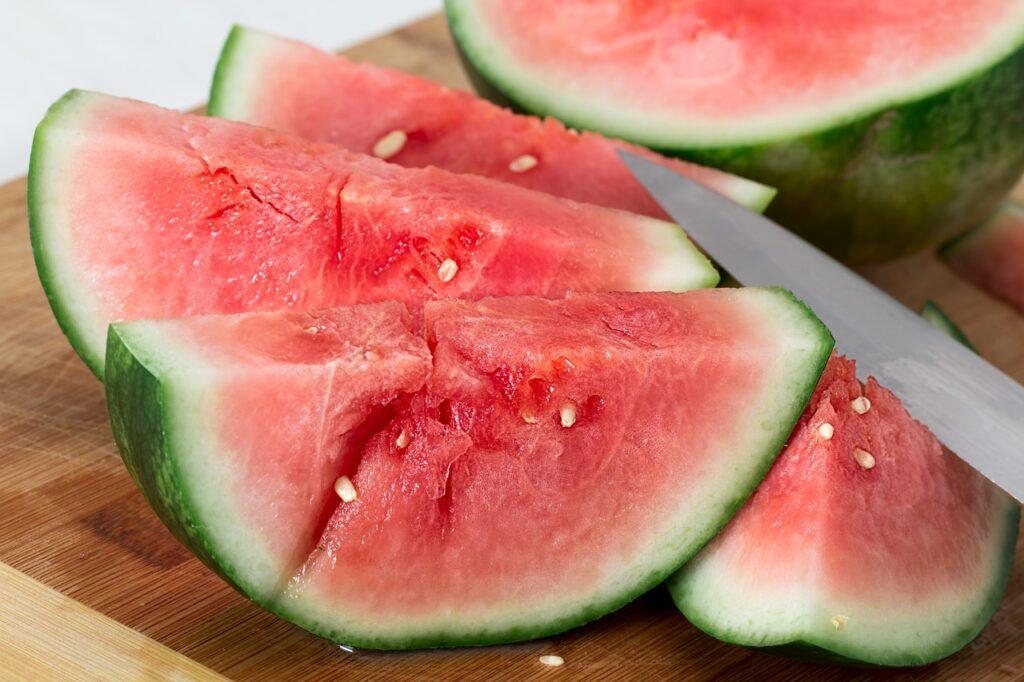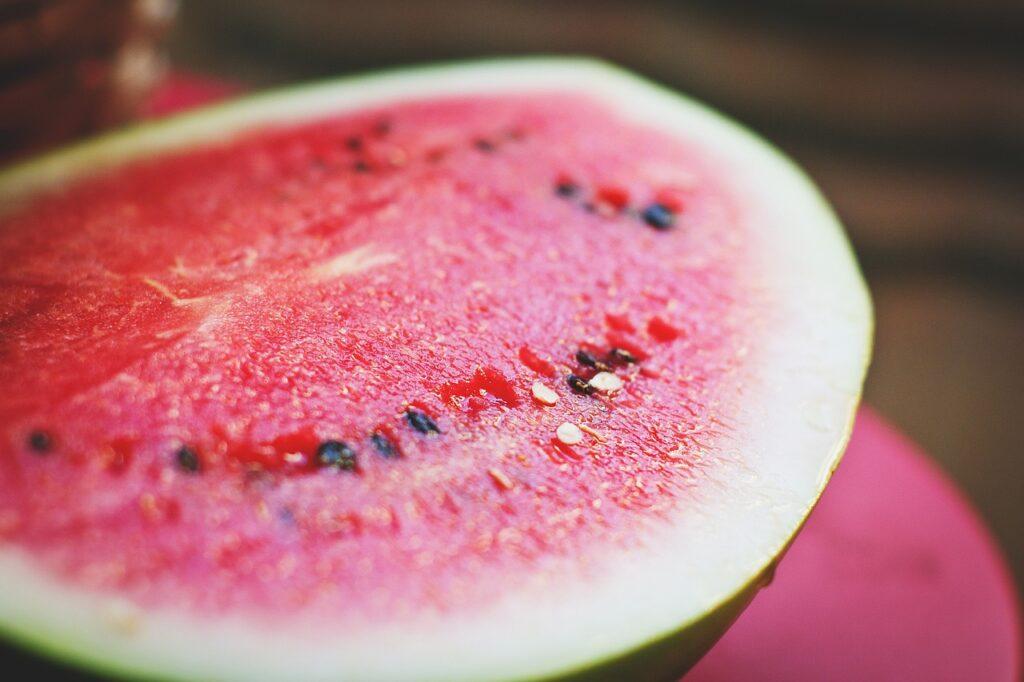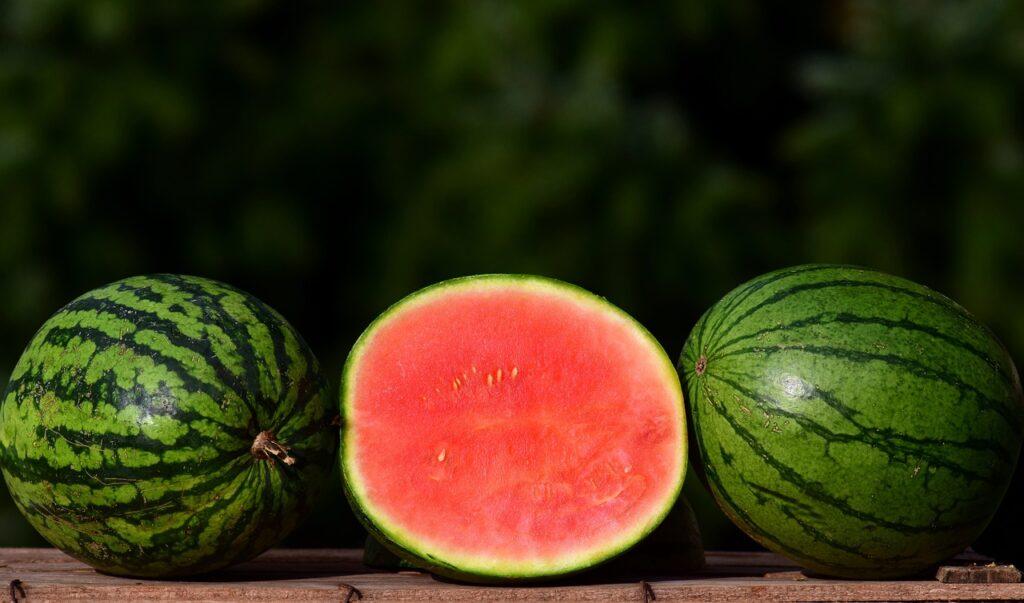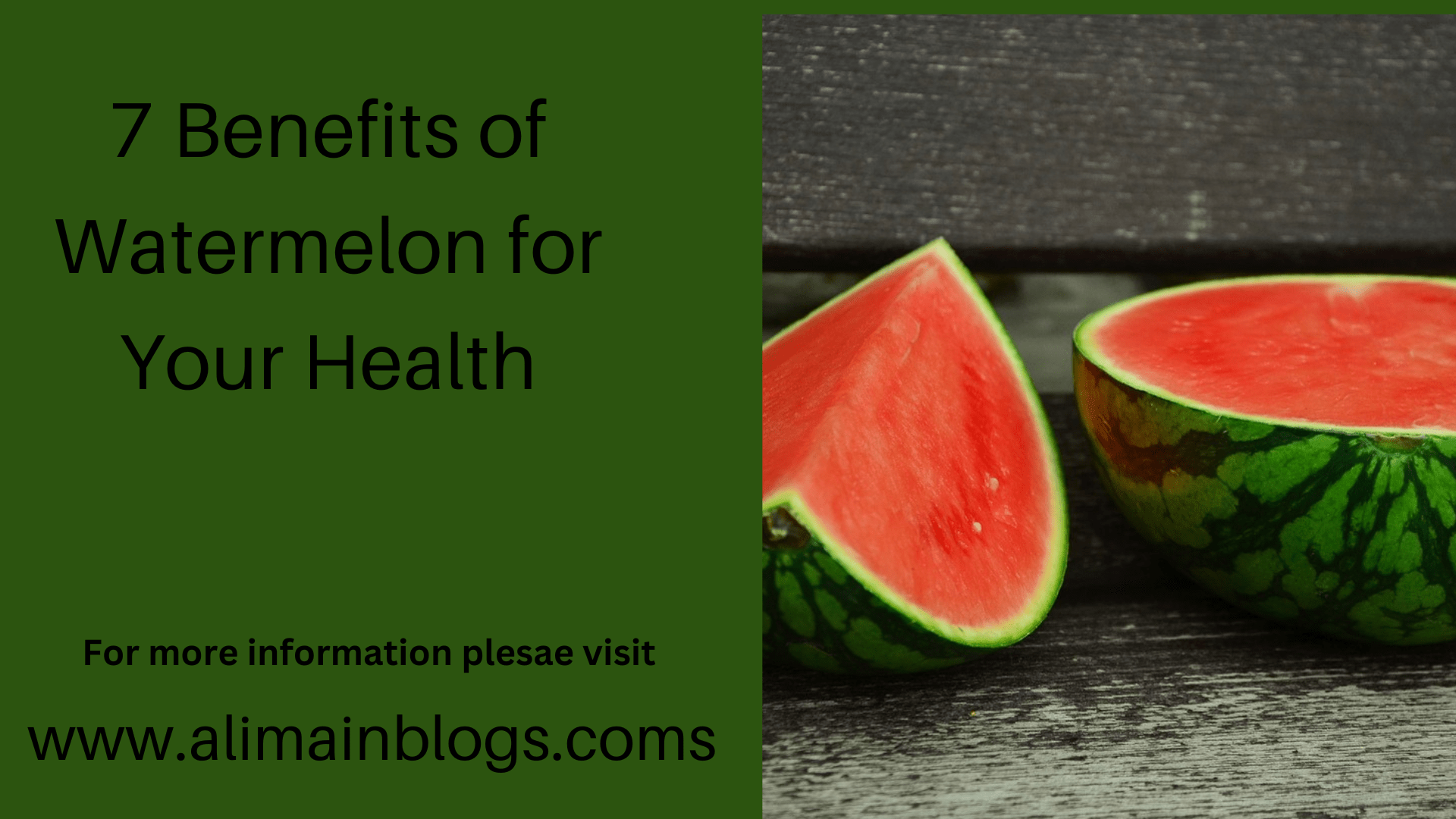7 Benefits of Watermelon for Your Health. A favourite fruit of the season throughout the summer, watermelon is also a sight to behold. It’s also quite healthy for you. Here are eight of the fruit’s most significant health advantages, tips for choosing perfectly ripe fruit, and ideas for using it in meals, snacks, drinks, and desserts.
You Stay Hydrated With Watermelon

This fruit is named after water, not by accident. The US Department of Agriculture (USDA) estimates that a cup of watermelon has around five ounces of water in it (about the size of a yoghurt container). Eating enough liquids, notably foods high in water, helps digestion, skin health, and blood circulation. According to a 2013 study in the Health & Fitness Journal of the ACSM. It also aids in controlling body temperature, organ and joint function, metabolism, hunger, and waste removal.
The ability to think clearly is also affected by sufficient hydration. The same study published in ACSM’s Health & Fitness Journal demonstrates how even a small loss of bodily fluid—between 1% and 3%—can affect mood, impede focus, exacerbate headaches and fatigue, impair working memory, and increase anxiety.
With Low Calories and Important Nutrients
Contrary to popular belief, watermelon contains less sugar and calories. According to the USDA, one cup of watermelon has 45 calories and 11 grammes of carbohydrates, nine of which are naturally occurring sugar. Together with potassium, magnesium, B vitamins, and health-preserving antioxidants. This natural sweetness also contains vitamins A and C, which boost immune system and skin health.
It facilitates blood pressure reduction and circulation improvement

L-citrulline, a naturally occurring compound found in watermelon (especially in the white area of the rind), has been demonstrated to enhance arterial function and reduce blood pressure by assisting blood vessels in relaxing and promoting circulation. Also, a 2017 study published in Clinical Nutrition and Metabolic Care suggests. That L-citrulline may enhance athletic performance and muscle oxygenation during endurance exercise.
It Lessens Muscle Pain
In a 2014 study published in the Journal of Agricultural and Food Chemistry. Athletes who drank 16 ounces of watermelon juice an hour prior to exercise felt less sore afterward and recovered their heart rates more quickly than those who drank a placebo.
Another study on male runners found that those who drank 16 ounces of watermelon juice enriched with L-citrulline two hours before participating in half-marathon races reported less perceived muscle soreness for up to 72 hours compared to those who drank a placebo beverage. The study was published in a 2017 issue of Food & Nutrition Research.
It Could Help You Control Your Weight Healthily

When watermelon is used as a weight-control tool instead of a processed sweet snack, it may support healthy weight management. A 2019 study published in the journal Nutrients examined changes in weight and satiety in overweight and obese people following a four-week intervention.
A second group was given low-fat cookies with the same number of calories as the watermelon during the research. While the first group was instructed to regularly consume two cups of fresh watermelon. Snacks could be had at any time of day, in a single sitting or across several, alone or in combination with other items.
Researchers discovered that satiety—defined as diminished hunger, increased fullness, and a decreased urge to eat—lasted up to 90 minutes after eating and was more strongly induced by watermelon than cookies. The watermelon eaters also improved their blood lipids and antioxidant status, lost weight, had lower waist-to-hip ratios and blood pressure, and lost weight.
Watermelon Promotes Intestinal Health

Although watermelon doesn’t have a lot of fibre, the fibre it does have helps to maintain a healthy gut. According to a 2016 study published in Current Opinion in Gastroenterology. The fruit also includes liquid and prebiotics, a type of fibre that promotes the growth and/or activity of helpful bacteria in the large intestine. Prebiotics have been linked to a strong immune system, anti-inflammation, and cheerful mood. Prebiotics also increase the absorption of minerals, raise insulin and blood sugar levels, and may prevent colon cancer.
It Aids in Disease Defense
According to a 2014 study published in Experimental and Clinical Sciences, watermelon is one of the top sources of lycopene. Antioxidant lycopene is well-known for preventing oxidative stress. Which develops when the body’s capacity to protect cells from damage and the creation of cell-damaging free radicals are out of balance. Lycopene lowers the risk of cancer, neurological illnesses including Alzheimer’s, heart disease, type 2 diabetes, and other chronic diseases. Traditional pink flesh watermelon, which has more antioxidants than yellow and orange kinds, is your best bet for getting the most lycopene.
It might safeguard your skin.
If you adore watermelon and make the most of it while it’s in season, it might provide some skin protection. Vitamins A and C in watermelon support healthy skin. The fruit’s lycopene concentration might prevent sun damage, albeit the effects take time to take effect. According to a 2021 study published in the Journal of Clinical Nutrition, eating tomato paste. Which contains 16 mg of lycopene, can lessen skin damage from the sun. A cup and a half of watermelon has roughly 9 to 13 milligrammes of lycopene in it, according to the USDA.
—————————–
Q&A
What happens if I regularly consume watermelon?
According to the American Cancer Society, watermelon is high in lycopene. But if you consume a lot of it every day, you can have bloating, indigestion, nausea, and diarrhoea.
Does watermelon benefit the organs?
Watermelon increases the liver’s ability to metabolise ammonia. A byproduct of protein digestion that lessens the burden on the kidneys and facilitates the removal of extra fluid. Watermelon is an excellent natural electrolyte and is high in potassium. Which helps control how the body’s muscles and nerves function.
What time of day is ideal for eating watermelon?
The optimal time to eat watermelons, according to Ayurveda, is in the morning between 10 am and 12 pm, either for breakfast or in between breakfast and lunch. Before 5:00 p.m., you can also eat it as an evening snack. Never take it with food or at mealtimes.
———————
FOR MORE INFORMATION PLEASE VISIT: alimainblogs.com
